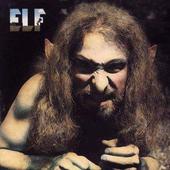This is how rock and roll happens. In the early to mid 1960s, Ronnie Dio and the Prophets garnered quite a bit of regional popularity, playing gigs wherever and whenever they could. Frat parties, block parties, restaurants, bars, total dives--you name it and they were there. Major record labels would even release singles from time to time. But worldwide notoriety remained elusive. By 1967 Dio's cousin Dave Feinstein was playing guitar with the band and Gary Driscoll had jumped on the drums. This was the era of psychedelia, and the band changed with the times. As a play on the band members' diminutive stature, they decided to call themselves The Electric Elves. Within a couple of years, the name of the band was truncated to The Elves, as they began to travel all over the country opening up for big-name acts like the Who and Badfinger. They became renowned for their live shows, mixing in original tunes with versions of popular rock songs of the day. Many have said that Elves' cover tunes were far superior to the recorded versions heard on the radio. And they kept auditioning and auditioning. Decca released two singles by The Elves in 1969-1970, but they were very blatantly Partridge Family-poppy AM radio pop. Obviously, that is not the direction the band wanted to go and Decca had no interest in developing The Elves artistic freedom. Second guitarist Doug Thaler quit the band somewhere around 1970-1971 to pursue other interests. As the band lineup became more streamlined, so did their music...and their name. Elf was to be a fundamentally different musical experience than The Elves. Instead of finding another guitarist, Feinstein simply added more amplifiers. This music was to be stripped down dirty 'ol honky tonkin' Rock and F-ing Roll with an edge. And LOUD! They wanted to differentiate themselves from other bands coming up at the time. They did not want to be the next Who or Led Zeppelin, even though they could have copped those styles with ease. And so they just did what they did best--ROCK. In 1971, Elf had landed itself an audition at Epic Records in New York City. This audition was going particularly bad. The execs were simply not interested. But as fate would have it, Roger Glover from Deep Purple happened to be in the same building and overheard the audition taking place. Just as Elf was about to get its umpteenth letdown, Glover barged in and said, "Sign that band!" (or something to that effect). The members of the two bands quickly became close friends. After all, Deep Purple was strictly a boozing band and, well, EVERYONE from Cortland is a boozer! From that day forward, Deep Purple would take Elf under its wing. Glover and Ian Paice produced Elf's first album, and the band toured all over the world in support of Deep Purple. After a lineup change, Elf cut two more albums for the Purple record label. In 1975, Richie Blackmore quit Deep Purple to go solo. Blackmore recruited Elf as his band, which was to be called Rainbow. After cutting the first Rainbow album, Blackmore fired all of the band members except Dio. Ronnie James Dio went on to become the most prolific hard rock singer of all time. Gary Driscoll was brutally murdered in 1987. Elf never more.
